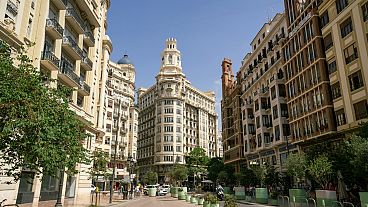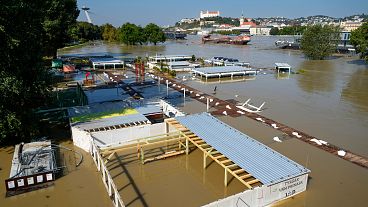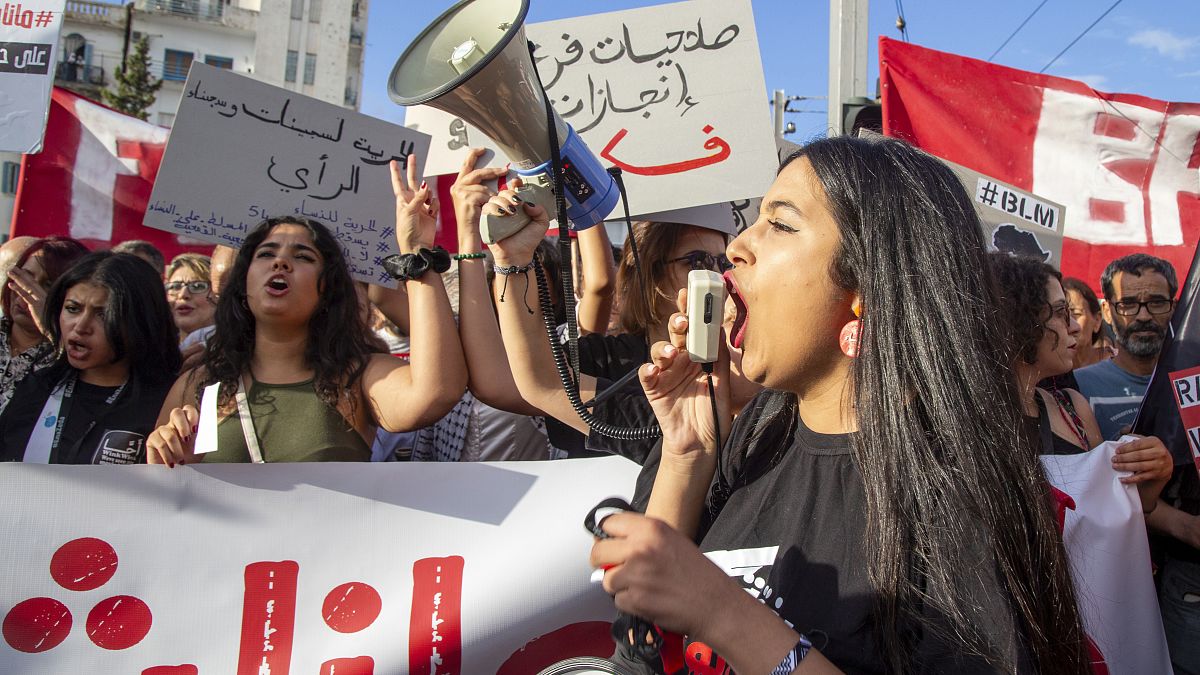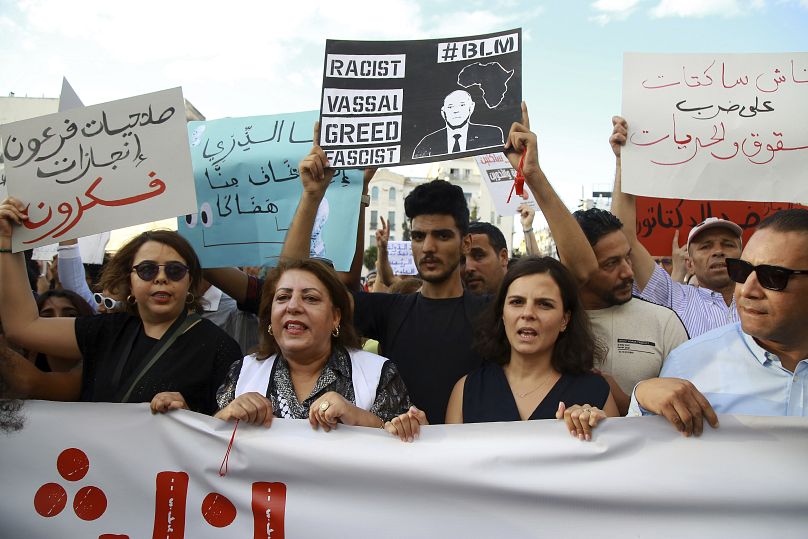Protests at the weekend capped off a week in which the North African country’s largest opposition party, Ennahda, said its senior members had been arrested at a scale not previously seen.
The presidential campaign season has started in Tunisia against a backdrop of protests against the country's rulers and the arrests of several opposition politicians.
Demonstrators organised a mass rally in the capital Tunis to protest against what they say is the deteriorating state of the country.
Samia Abbou, a former Tunisian assembly member who took part in the demonstration, said President Kais Saied has failed on many important fronts.
"Is it possible that Kais Saied continues to run the country? After what we have seen at the level of managing the administration, authority, and the judiciary, at the security level, and price control, in addition to foreign relations, and also at the level of irregular immigration, at all levels," she said.
Saied, who is seeking a second term in office in the 6 October election, is an unpopular figure in Tunisia.
When he was first elected in 2019, he used anti-corruption promises to win over people disillusioned with the political controversies that had plagued Tunisia's young democracy in the years that followed the Arab Spring.
But since taking office, the 66-year-old former law professor has gone to lengths to consolidate his own power, freezing the country’s parliament, ruling by decree and rewriting the constitution.
Throughout his tenure, authorities have arrested journalists, activists, civil society figures and political opponents across the ideological spectrum.
"The president is arresting and imprisoning lawyers, political activists and bloggers, in addition to arbitrarily transferring judges. We came out today to say no to attacks on rights and freedoms," said demonstrator, Sghaier Zakraoui.
The protests capped off a week in which the North African country’s largest opposition party, Ennahda, said its senior members had been arrested en masse, at a scale not previously seen.
The Islamist party rose to power in the aftermath of the Arab Spring and said in a statement on Friday that tallies collected by its local branches suggested at least 80 men and women from the party had been apprehended as part of a countrywide sweep that ensnared members from 10 regions.
For weeks democracy and human rights advocates have been calling on the EU to put more pressure on the government, as they raise concerns that the election is unlikely to be free and fair.
Tunisia and the European Union
And Brussels is reportedly watching events unfold with concern.
On Friday, the British newspaper The Guardian said it had seen a draft report by the EU’s diplomatic service (EEAS) which raised concerns about “a clear deterioration of the political climate and a shrinking civic space” in Tunisia.
"The EU continues to have a keen interest in preserving its partnership with Tunisia in order to ensure the country’s stability," the report said, acknowledging fears that without the support of the bloc, Tunisia might be drawn closer into the orbit of countries like Russia, Iran and China and what that shift might mean for the EU-Tunisia Migration Agreement.
The deal, which was signed in 2023, is designed to slow down the numbers of migrants attempting the Mediterranean crossing by boat. In return Tunisia receives hundreds of millions of euros of financial aid.
But even within the EU it was controversial with some senior MEPs accusing the Commission of "bankrolling dictators" when it was signed.
Whoever wins the October vote will have their work cut out for them.
Tunisia's unemployment rate has steadily increased to one of the region’s highest at 16%, with young Tunisians hit particularly hard.
And the economy continues to face significant challenges. The National Institute for Statistics said in March that economic growth was at a standstill, at just 0.4%.













